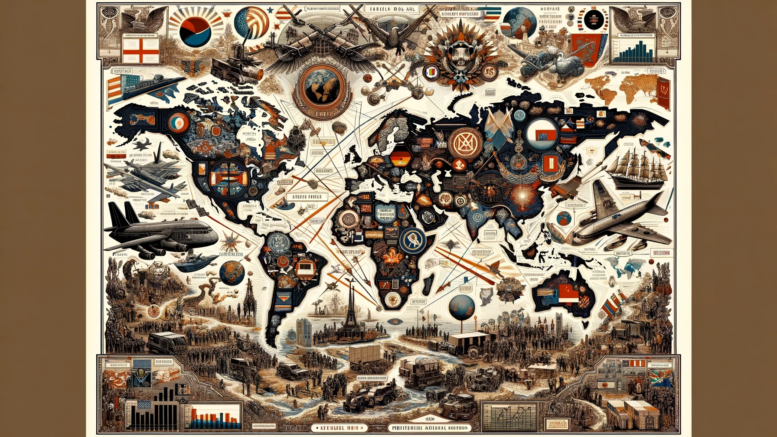Major wars have historically been significant catalysts for shifts in global geopolitics. The aftermath of these conflicts often results in substantial realignments of power, changes in international relations, and the emergence of new geopolitical structures.
 For instance, the conclusion of World War II marked a pivotal moment in global geopolitics. This period saw the establishment of a new international order characterized by open markets and free trade, largely emerging from the consensus on the benefits of reduced trade barriers and the prioritization of trade gains. The end of the Cold War extended this consensus with the European Union’s eastward expansion and the inclusion of countries like Russia and China into the World Trade Organization. This integration period, however, has recently faced challenges, with increasing geopolitical tensions leading to debates about decoupling between different global blocs. This trend could potentially result in significant economic and technological setbacks.
For instance, the conclusion of World War II marked a pivotal moment in global geopolitics. This period saw the establishment of a new international order characterized by open markets and free trade, largely emerging from the consensus on the benefits of reduced trade barriers and the prioritization of trade gains. The end of the Cold War extended this consensus with the European Union’s eastward expansion and the inclusion of countries like Russia and China into the World Trade Organization. This integration period, however, has recently faced challenges, with increasing geopolitical tensions leading to debates about decoupling between different global blocs. This trend could potentially result in significant economic and technological setbacks.
Furthermore, current geopolitical trends identified by RAND researchers, such as U.S. polarization, China’s rise, and the resurgence of Russia, continue to drive conflict and are likely to do so into the future. These trends are reshaping global alliances and creating strategic dilemmas, especially for countries like the United States, which may face conflicting demands on its resources and strategic focus due to potential conflicts in different regions of the world.
The economic impacts of these geopolitical shifts and conflicts are profound. For example, Russia’s invasion of Ukraine has not only been a disaster for global peace but has also compounded pre-existing adverse global economic trends. These include rising inflation, increasing food insecurity, and a move towards deglobalization. The conflict has led to fuel and food shortages, exacerbating inflation and disrupting global trade. Additionally, the potential end of the peace dividend, which has long facilitated higher social expenditures in advanced economies, could lead to a significant rebalancing of fiscal priorities.
Major wars have consistently been followed by significant shifts in global geopolitics, impacting international relations, economic structures, and strategic alliances. These shifts often result in new global power dynamics and have far-reaching consequences on the world economy and international trade.




